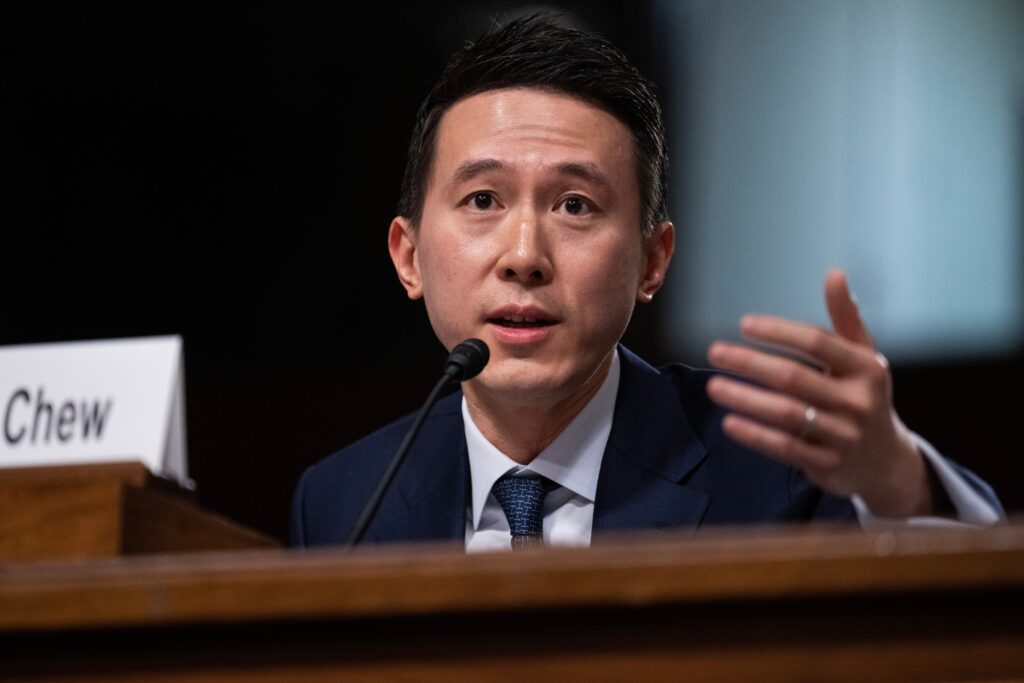US President-elect Donald Trump is meeting the CEO of TikTok as the social media giant fights plans to have it banned in the US.
Trump was due to meet Shou Zi Chew at his Mar-a-Lago estate in Florida on Monday, the BBC’s US partner CBS News reports, citing sources familiar with the meeting.
A law passed earlier this year means TikTok will be banned unless it is sold by its Chinese parent company, ByteDance, before 19 January.
The company has made an emergency application to the US Supreme Court to have the ban delayed.
The US wants TikTok sold or banned because of alleged links between ByteDance and the Chinese state, links that both TikTok and ByteDance have always denied.
The bill introducing the law said it was intended to “protect the national security of the United States from the threat posed by foreign adversary controlled applications”.
Trump opposes the ban – despite supporting one during his first term – partly on the grounds that it could help Facebook, which he has accused of aiding his 2020 election loss.
Trump’s second term, however, won’t begin until he is inaugurated on 20 January, the day after the deadline set out in the law.
In its filing to the Supreme Court, submitted on Monday, TikTok asked for a “modest delay” to the enforcement of the ban to “create breathing room” for a review by the Court and to allow the incoming administration to “evaluate this matter”.
It described TikTok as “one of the most significant speech platforms” in the US and said the ban would do “immediate irreparable harm” to the company and its users.
Earlier this month, the company’s bid to have the ban overturned was rejected by the federal appeals court, which found that the law was the “culmination of extensive, bipartisan action by the Congress and by successive presidents”.
At a press conference on Monday, Trump said his administration would “take a look at TikTok”.
“I have a warm spot in my heart for TikTok, because I won youth by 34 points,” he said.
“There are those that say that TikTok has something to do with that. TikTok had an impact.”
A majority of 18 to 29-year-olds backed Trump’s Democratic opponent, Kamala Harris, in November, but the vote did see a significant swing towards Trump among young voters since the 2020 election.
Trump only joined TikTok in June, but gained millions of followers on the platform over the course of the campaign.
By BBC News
Email your news TIPS to Editor@kahawatungu.com or WhatsApp +254707482874
